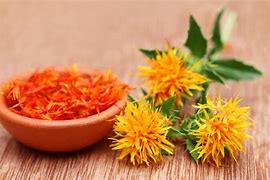Description
Citrus peel (chen pi)
Pericarpium citri reticulata
What is citrus peel? What is it used for?
Citrus peel is the dried peel of a citrus fruit, most commonly a tangerine or Mandarin orange. (Note: If an immature peel is being used, the peel is known as qing pi.) The peels are removed from the fruit and allowed to dry in the sun before being used. According to some traditional Chinese medicine beliefs, the older the peel is before being used, the greater its effect.
Citrus peel is perceived to have a pungent, bitter flavor and a warm property. It interacts with the Spleen, Stomach and Lung meridians, and has three primary functions in traditional Chinese medicine:
It circulates the spleen and stomach qi and strengthens the spleen.
It lessens the severity of nausea and vomiting.
It can be used with pinellia and poria to help phlegm congeal, reduce cough and ease discomfort in the chest and diaphragm. Western medicine, citrus peel is believed to possess several beneficial properties. At various times, it has been used as an expectorant; tonic; anti-emetic; antibacterial; and anti-inflammatory.
How much citrus peel should I take?
The typical dosage of citrus peel is 3-10 grams, boiled in water and used as a decoction.
What forms of citrus peel are available? Whole citrus peel is readily available from most Qing Pi. What can happen if I take too much citrus peel? Are there any interactions I should be aware of?
What precautions should I take?
Citrus peel should not be used in cases of dry cough caused by yin deficiency, and should be used with caution in cases of dry excess heat. It is relatively safe, especially for long-term use; the American Herbal Products Association has given it a class 1 rating, meaning it can be safely consumed when used appropriately. As of this writing, there are no known drug-interactions with citrus peel.
References
Agricultural Research Service. March 23, 1999. Symposium highlights potential benefits of citrus compounds. Available at www.ars.usda.gov/is/pr/990323.htm.
Bok S-H,, et al. Plasma and hepatic cholesterol and hepatic activities of 3 hyroxyl-3-methyl-glutaryl-CoA reductase and acyl CoA: Cholesterol transferase are lower in rats fed citrus peel extract or a mixture of citrus bioflavonoids. Journal of Nutrition June 1999;129:1182.















Reviews
There are no reviews yet.